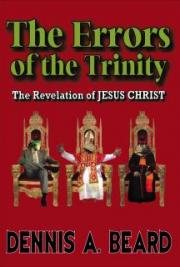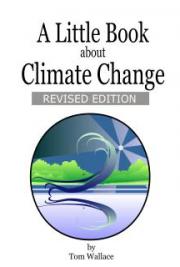How do we Stand?
In this book I have tried to draw a characteristic sketch of the eight most remarkable heads among the legion of authors belonging to the nineteenth century. I have not stopped to make any literary estimates, as these are of no lasting importance, because they vary with the change of standards. What I have done is to uncover and expose to view the subject-matter of their productions. I have tried to drag forward the personality of the author, in order that the man may be measured by his work, and the work by the man; for a man’s work is no fortuitous incident. The man and his work are one; the work of a manly man is man’s work, the work of an effeminate man is fancy work, and the work of a half man is half work.
Now I ask: What is it that we women have to demand from the men of this century who have offered to be our guides, teachers, deliverers, cavaliers and religious teachers? And this is our reply: We ask that they should be men, nothing more. The more manly they are, the more womanly we shall be—preaching and education, rivalry and competition, boasting and flattery are all of no good, only the manly man can redeem the womanly in woman; all else is make-believe.
Let us consider these eight representative men in relation to their work. We must confess that the oldest and the two youngest among them have bequeathed man’s work, by which we mean lasting work which will be valued more highly as time goes on. The manliness of their work is proved by the fact that they looked neither to the right nor to the left, nor hearkened to the course of time, nor winked at the women, but said what they had to say—neither more nor less—and wrote what they were obliged to write, owing to their personal temperament. None of them wrote for us, neither Keller, Barbey nor Maupassant, nor did they stop writing to wonder what we should say. They never thought about us at all, and that is why they are the greatest of women’s authors, not the authors for the women of yesterday, to-day or to-morrow, but the interpreters of woman, authors from whom we can learn to understand ourselves as we gaze upon the reflection of our own images in the soul of man.
The authors who were young about the middle of this century form a group apart, and they treat both us and themselves with equal solemnity. How excellent are their intentions, and how deep their interest in us! They want to raise us, purify and deliver us, and they want to do it so thoroughly that they would rejoice if they could deliver us from our womanhood. They write for us, they appeal to us—Björnson, Ibsen, Heyse, Tolstoy, Strindberg—each in his own way. The one would have us be intellectual women, the other sexless women, and the third (in his latter years) would like to make us into apple dumplings with whipped cream, the fourth into men-haters, etc. We have their permission to be anything we like—doctor, professor, and a lady to the tips of our fingers, only not the mother of future generations to whom nothing human is strange, because she carries humanity at her breast.
It is thus that the half man seeks to create woman in the likeness of his own image, to make her only half a woman.
There have never been so many books written in any century as in ours, when so much is written that men have long ceased to read at all, and they are by no means the worst men who do not care for literature. But women read for two; and the authors, who live by being read, write for the cultivated, thinking, studious woman—for the woman with the adjective.
Time passes, the century is drawing to a close, and the bankruptcy of its “intellectual attainments” becomes ever more apparent. Are we women to allow ourselves to be the only ones who are duped into the next century by these same intellectual attainments? Or shall we take our fate into our own hands and measure our being by a higher standard than that of “Liberty, Equality, Fraternity?”
In order to do that there is no necessity for us to read the books that are written for women—it were better to read those that are written for men. Reading is a substitute for “living.” If we would build up for ourselves a life out of our own womanhood, we need have no recourse to authors, thinkers and prophets, such as this anæmic century produces; we must turn to our own natures—not to our intellect, for that will not bring us very far, but to our instinct. And it seems to me that the first signs are already to hand, that woman will again determine to be nothing more, but also nothing less, than the mother of future generations.







